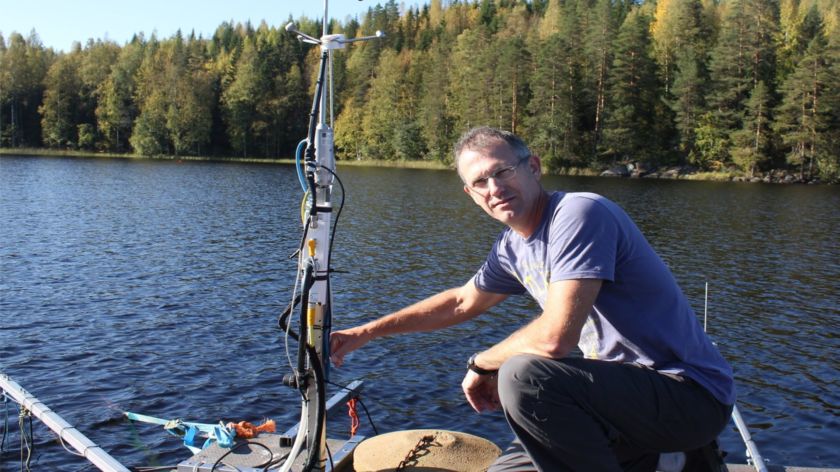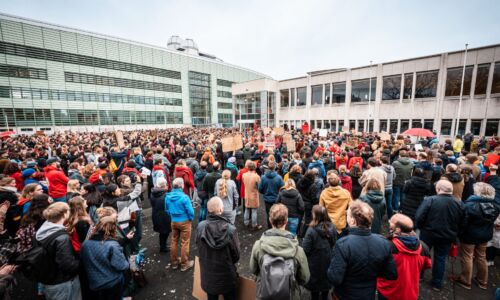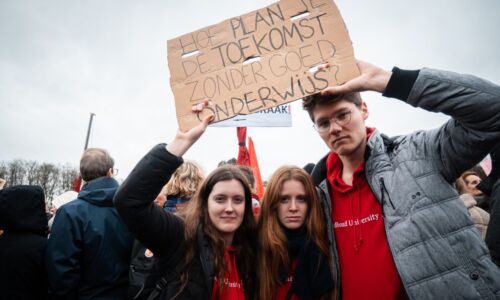Three large European group grants awarded to science faculty
-
 Mike Jetten during fieldwork
Mike Jetten during fieldwork
Professors Mike Jetten, Misha Katsnelson, and Theo Rasing will receive millions in European funding for setting up research collaborations. This was announced today by the European Research Council (ERC) which allocates the funding of the Synergy Grants.
The ERC Synergy grants are aimed at researchers who want to work together on a topic in groups of two or four, in a national or European context. At around ten million euros per project, for a period of six years, they are among the most sought after and prominent research grants. The ‘Nijmegen’ photograph of the black hole was taken as a result of the Synergy Grant that was awarded to astronomer Heino Falcke in 2013.
Lake beds unable to sustain life
Microbiologist Jetten was awarded 7.7 million euros. Together with the marine geochemist Caroline Slomp from Utrecht, he will research why some river estuaries have a high concentration of methane and ammonium, and others do not. These substances are toxic for a lot of marine life. Jetten: ‘Take the Grevelingenmeer, for instance. For most of the year, fish cannot survive at the bottom of the lake.’
Anaerobic bacteria, which do not need oxygen to live, are the cause of ammonium and methane production. They proliferate in river estuaries, where there is an excess of nutrients as a result of agriculture or other human activities.
‘We hope to be able to provide the water authorities with instructions for creating a healthier ecosystem’
Jetten suspects that the variation in ammonium and methane in the river estuaries is caused by the differences in the types of bacteria living there. There is less methane and ammonium in places where there are many iron compounds in the river bed. ‘We think that there are specific types of bacteria there that break down those two substances; bacteria that we are unfamiliar with at the moment.’
Jetten and his project partner Slomp will identify all microbiological and chemical processes in and around river estuaries and create models of them. ‘We hope it will enable us to provide the water authorities with instructions for creating a healthier ecosystem.’
Alternative hard drives
Jetten is the primary applicant for his project, the only one among the three winners from Nijmegen. The research conducted by Katsnelson (also 7.7 million) and Rasing (11 million) is led by scientists from Sweden and Germany respectively, both in the field of physics.
Rasing will examine whether special 3D molecules can be used for more efficient data storage. Lastly, Katsnelson will perform theoretical research which should improve the analysis of fundamental physics experiments with free electron lasers.



